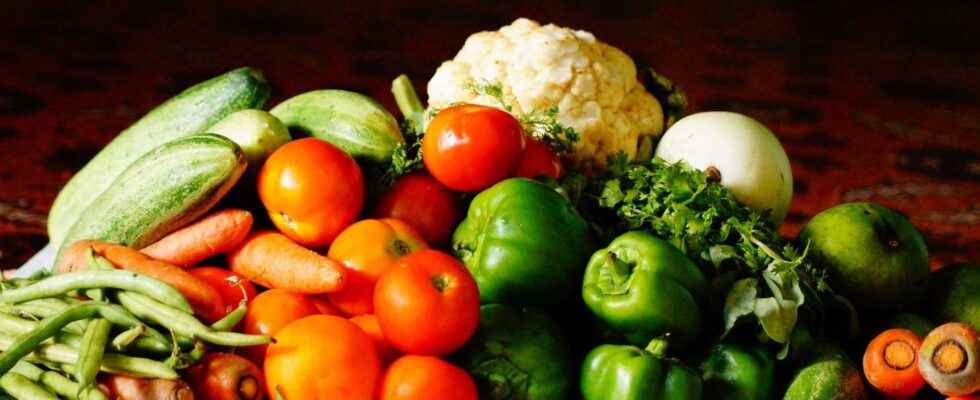Five servings of fruits and vegetables per day are recommended. But fresh produce is not necessarily the ultimate way to achieve this; in some cases, the nutritional qualities are better preserved with canned or frozen food.
You will also be interested
To make the most of the benefits of vegetables, their method of conservation and of cooking is essential. Aside from practicality (frozen foods save the chore of peeling and avoid waste) and cost (canned foods are generally less expensive), certain vegetables lend themselves better to different forms of marketing. Advantages and disadvantages of each.
Fresh vegetables: eat right away
On the taste side, fresh vegetables have an incomparable advantage. Provided, of course, that you buy products from season and not zucchini imported from Spain in full winter. However, they have a major drawback: their vitamins degrade rapidly toair free. a broccoli which takes three days to reach the shelves will have already lost about 50% of its vitamin C, and after an additional week at the fridge, there are none left at all! Vitamin B9, found for example in spinach, is it very sensitive to oxygen, light and the heat.
Although supermarkets are generally supplied daily, their distribution chain is generally long: it is better to favor vegetables from the market picked the same morning or from local producers. Finally, be aware that some vegetables should not be stored in the refrigerator, as the cucumber, which withers and loses its taste, the tomato, which becomes soft and floury, or the onions, the potatoes and the eggplants.
Frozen: rich in vitamins
It usually takes less than five hours between picking and freezing vegetables. They are mostly bleached to deactivate their enzymes and thus preserve their color and their texture. This process destroys a small part of the nutrients, but in the end frozen foods retain at least 80% of their vitamin C, a content much higher than that of fresh vegetables usually consumed. Deep freezing also better preserves phenols and antioxidants such as those of artichokes or some cabbage from Brussels. However, even frozen vegetables lose their qualities over time. Do not leave them for more than six months in the freezer.
Finally, not all vegetables are suitable for freezing. Those intended to be eaten raw, such as tomatoes or salad, cannot be frozen, as their appearance would be completely degraded during defrosting. the leek conversely, it can be frozen raw once cut into slices.
Preserves: good for carotenoids
Appertisation (heating to 120-130 ° C) plunges the level of vitamin C, which is very sensitive to heat. Spinach and peas in a box lose between a quarter and a half of their vitamin C. green beans are doing a little better with only 13% loss. In addition, some vitamins such as B9 are soluble in water and are found in the liquid of the box. Conversely, the carotenoids are much better preserved in cans: canned tomatoes contain up to four times more lycopene than fresh tomatoes. On the taste side, it must be recognized that appertization does not work very well with certain vegetables: the peas tend to soften and the mushrooms to become spongy.
Interested in what you just read?
Subscribe to the newsletter The health question of the week : our answer to a question you ask yourself (more or less secretly). All our newsletters
.
fs7
